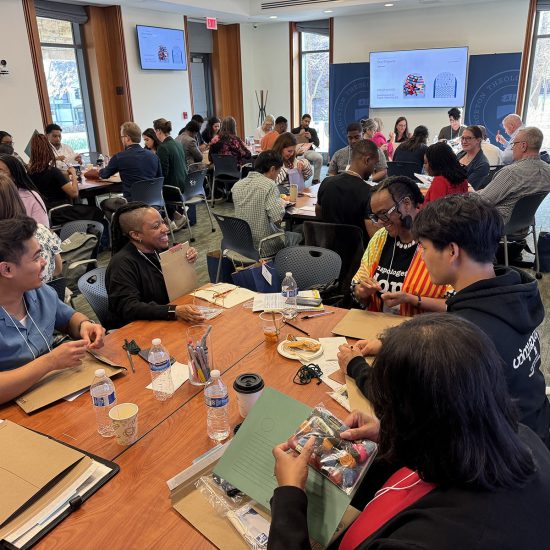While many churches reach out to meet the immediate needs of people who have lost jobs, Christians also are called to tackle underlying social issues related to employment and to partner with others to help make long-term changes, some ethicists advocate.
 |
Government involvement
"Churches need to play a part in the local, state, regional and national debate about work," said Bill Tillman, the T.B. Maston Chair of Christian Ethics at Hardin-Simmons University's Logsdon Seminary in Abilene.
Not only should Christians speak up about the number of jobs available, but they also should advocate for salary levels and quality. Tillman noted the current economic downturn hit Texas at a slower pace than in many parts of the country and even more slowly in Abilene. Unemployment in the West Texas city stands at only 6 percent to 7 percent, but most jobs are lower-paying, he said.
Congregations can partner with government and social advocacy groups to affect change, David Gushee, distinguished professor of Christian ethics at Mercer University, said.
He pointed out how government, unions and social advocacy groups worked together when recession hit Germany.
"They found a way to keep people on the payroll, even if they couldn't work full time. Some work is better than no work," he said.
All strata of society—including churches and their members— should be involved in solving the unemployment problem, the ethicists insisted.
"This is a mission field," Tillman said. "But Baptists haven't been in the mindset of seeing economics as a mission."
Gushee agreed. "Those (Christians) who can should be activists and advocates for a more humane society. The economy is for people. That's the thing to remember," he said.
"This is yet one of many examples where pastors and church leaders have the opportunity to give a unique Christian perspective … on economic and social ethics … by using the pulpit and other forums."
Unemployment must be addressed systemically. "Baptists don't have an institutional or systemic approach," Tillman added. "The Baptist approach grows out of individualism."
Connections
One way to take a systemic approach is to partner with others and to use available broad system connections. For example, Tillman noted, First Baptist Church and First Central Presbyterian Church partner to minister in Abilene.
And the churches tap those who are in positions of authority. "They find the people who are in the systems, using leverage into the larger system," he said.
A state representative is a member of one church, and Abilene's mayor is a vice president in the Hendrick Medical System, a health care system related to the Baptist General Convention of Texas.
"Churches with professionals and systems … can work with the pastor to address the systems, first through conversation," Tillman said. "Opportunities are closer to us than we know, offering channels that we haven't explored before."
Create jobs
Individual Christians could use their own resources as a way to create opportunities for others. "Corporations and those (Christians) who run businesses need to think about the 25 million people out of work and open their purse strings to create jobs," Gushee said.
Christian entrepreneurs might develop businesses or not-for-profits to create jobs, said Tarris Rosell, professor of pastoral theology, ethics and ministry praxis at Central Baptist Theological Seminary in Shawnee, Kan., and the Rosemary Flanigan Chair at the Center for Practical Bioethics in Kansas City.
In collaboration with others, Rosell has been part of starting a church, a nonprofit organization for refugee resettlement, a nonprofit that matches uninsured patients with pro bono health care providers, and a program to educate clergy and faith communities about depression. Currently, he is helping create a nongovernmental organization for the prevention of intertribal violence in Kenya.
"The results have been, in part, new jobs and meaningful work as vocation," he said.
Churches can create jobs, too, by budgeting for them, whether full-time or part-time, Gushee added.
Volunteerism
While the ethicists agreed volunteerism isn't the best answer to unemployment, it can help people regain some measure of self-esteem and add productivity to society.
"I think that what people need is to be employed. It's not the best full answer … but volunteering and other forms of service should not be overlooked for meeting needs of productivity," Gushee said.
Volunteerism may lead to employment opportunities, Richard Land, president of the Southern Baptist Convention's Ethics & Religious Liberty Commission, believes.
"The church should find places for them (the unemployed) to work, even volunteer work," he said, "for often, volunteer work can launch them into a new career, or they may discover things they didn't know they could do."






